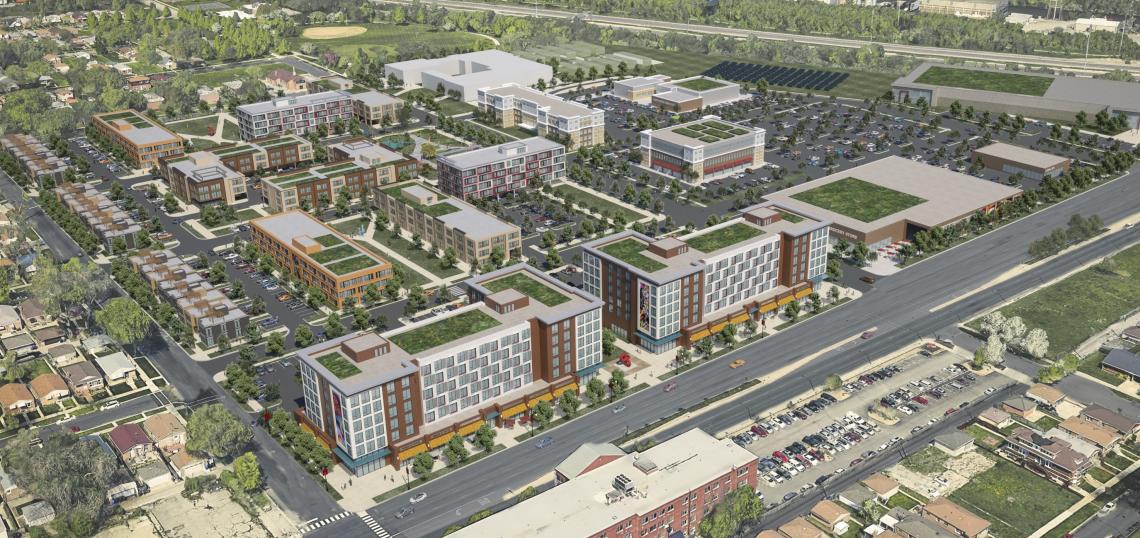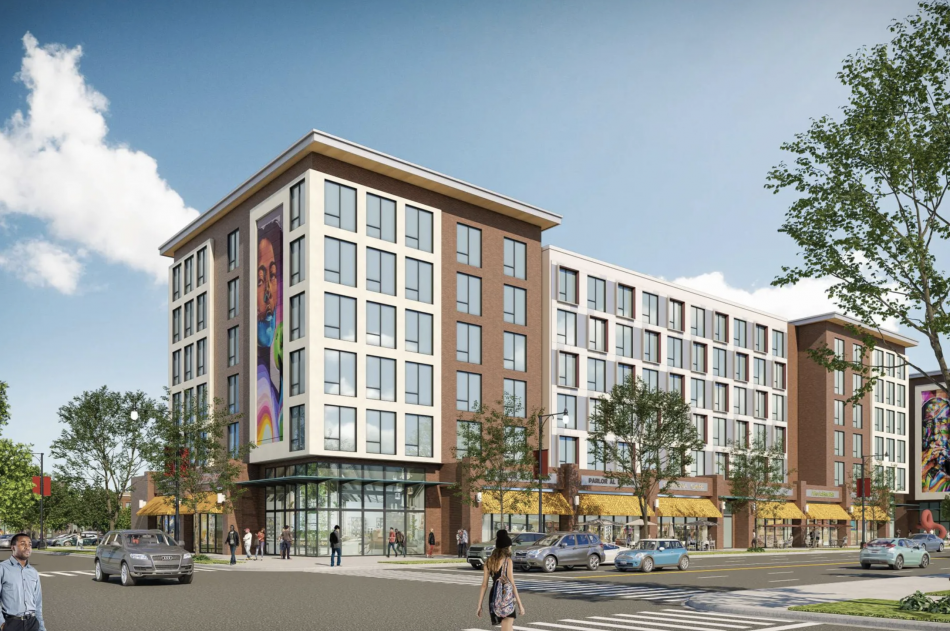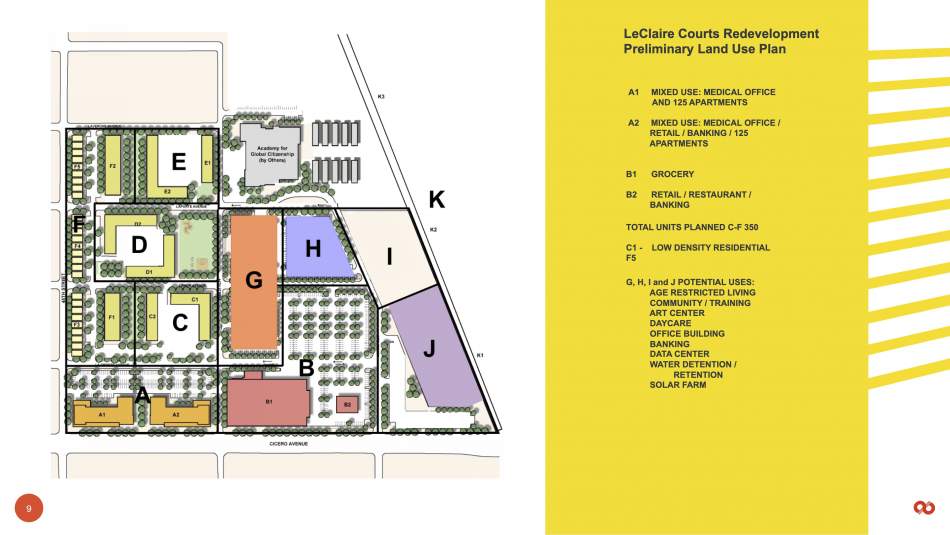The Chicago Housing Authority and private developers are moving forward with a plan to reimage the vacant 32-acre former site of the LeClaire Courts housing complex in the Garfield Ridge neighborhood. If realized, the $350 million mixed-use plan could be one of the largest real estate projects to come to the Southwest Side in recent history.
Located along Cicero Avenue south of the Stevenson Expressway and a mile-and-a-half north of Midway Airport, the LeClaire Courts site has sat idle since the CHA demolished the original 1950s-era housing complex in 2011. Redeveloping the parcel—and providing a required minimum of 186 homes for displaced CHA residents—has been a long and slow-moving process for the Chicago Housing Authority.
The city agency started its search for developers in 2016 and in 2019 formed LeClaire Partners: a joint venture between itself and developers Cabrera Capital Markets, and The Habitat Company. At a virtual community meeting in December, the team finally shared its site plan, designed by Knight Engineers & Architects and Solomon Cordwell Buenz.
The multiphase proposal calls for roughly 700 mixed-income residences comprising CHA, affordable, and market-rate units. The development will also provide new retail, offices, open space, parking lots, and facilities offering services like daycare and job training.
According to the team, the first phase will include two 80-foot-tall mid-rise buildings with a combined 250 residences as well as a new grocery store at the corner of 44th Street and Cicero Avenue. Future phases will encompass about a dozen low-rise residential buildings situated west of phase one.
In addition to holding community meetings to discuss the plan, the development team also filed a zoning application with the city late last month—a clear indication that they're serious about moving forward. The proposal will still need to go before the Chicago Plan Commission, the Committee on Zoning, and the Chicago City Council for a final vote.
The developers hope to get approvals and financing in the third quarter of this year and break ground by late 2021 or early 2022. Construction of the first phase is expected to take 18 months, the Chicago Sun-Times reported.









